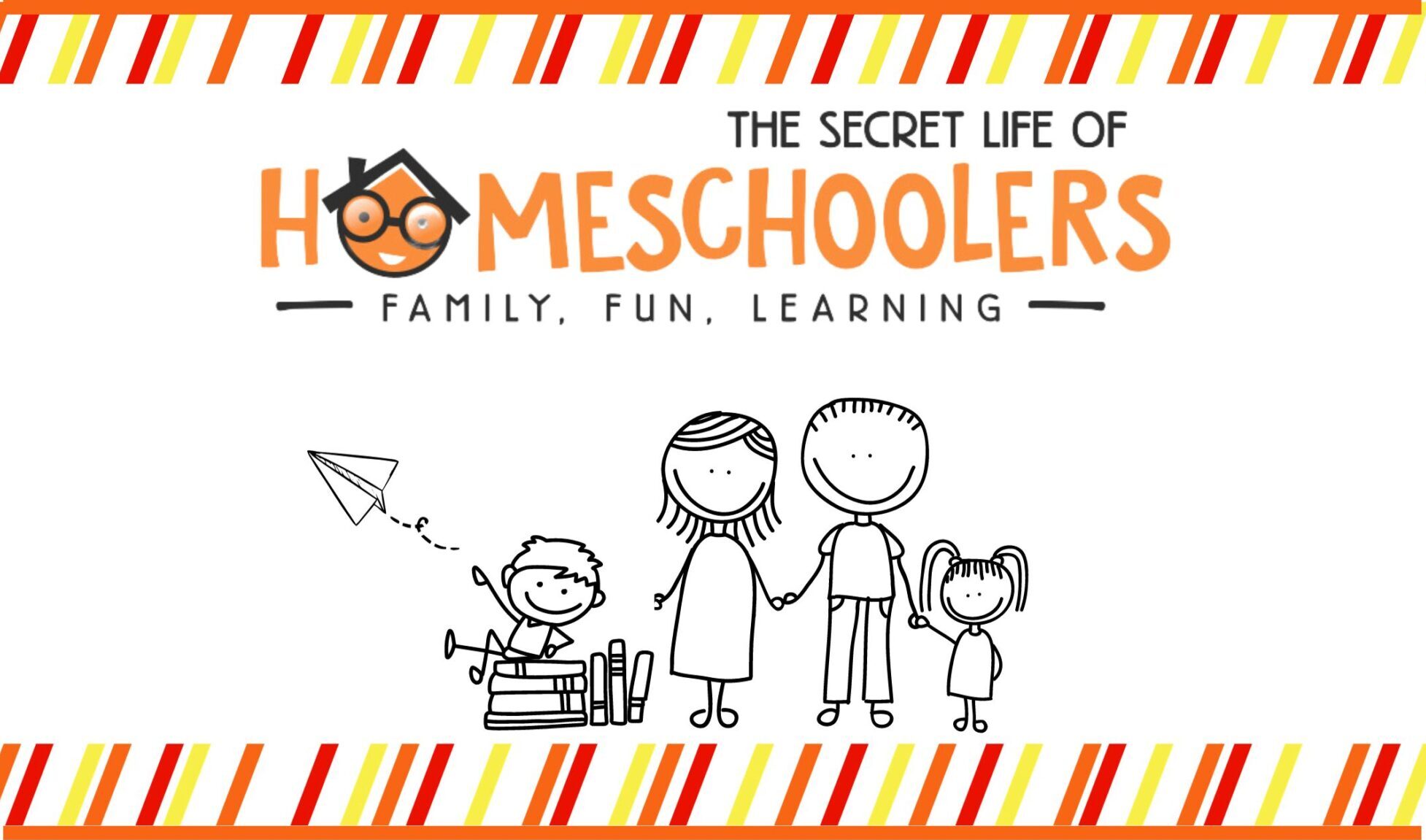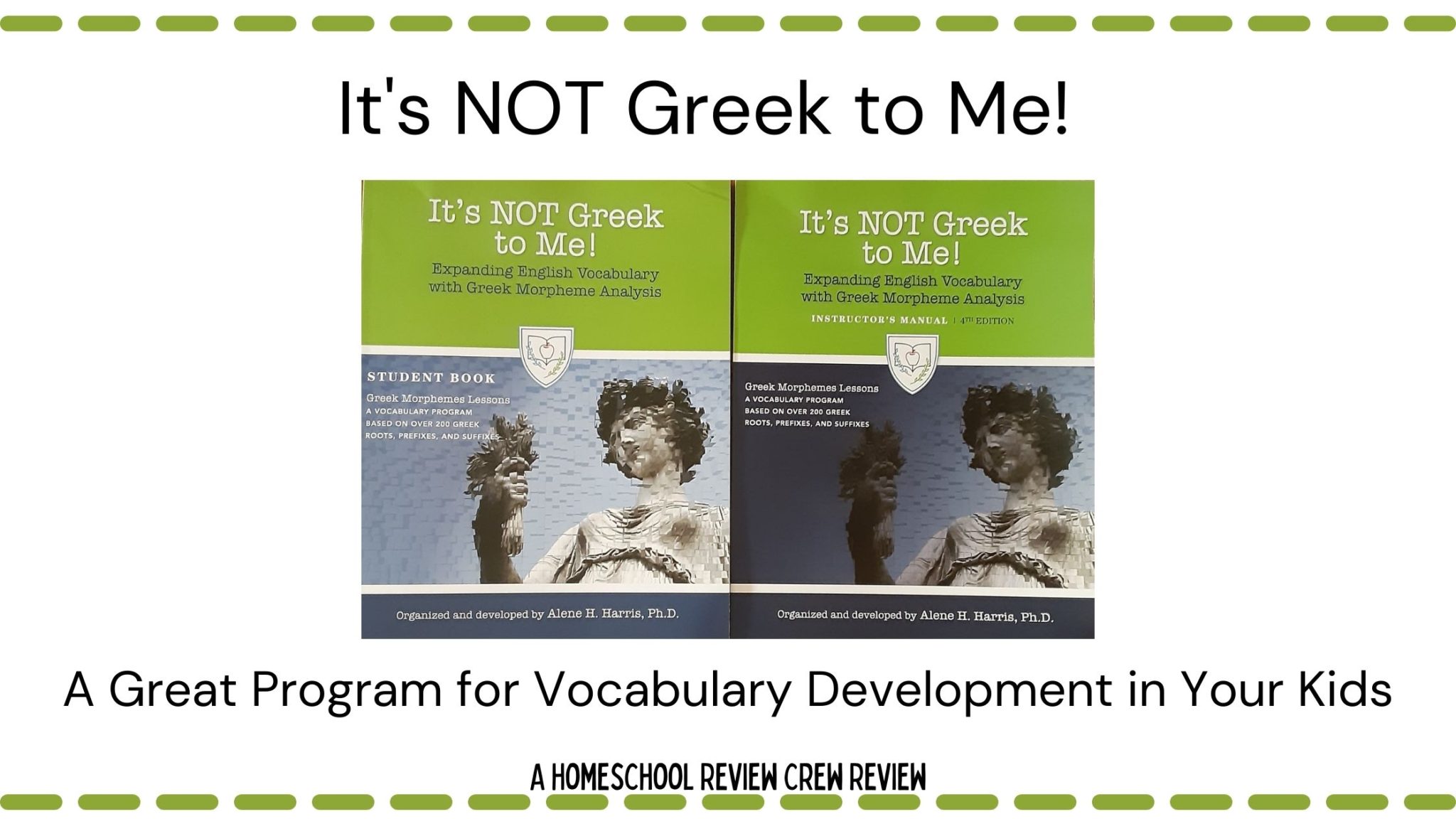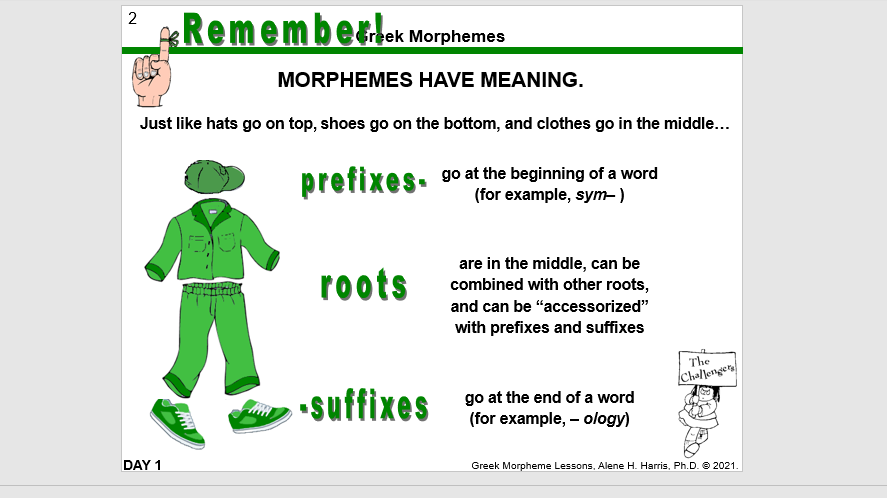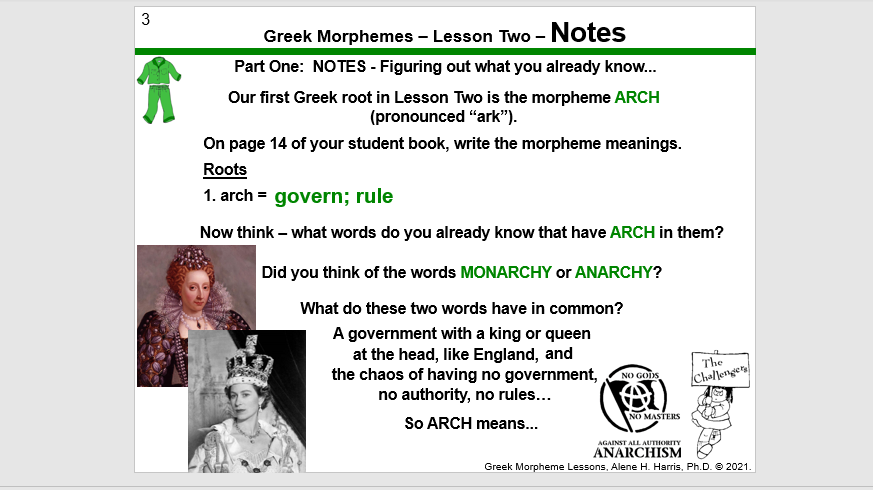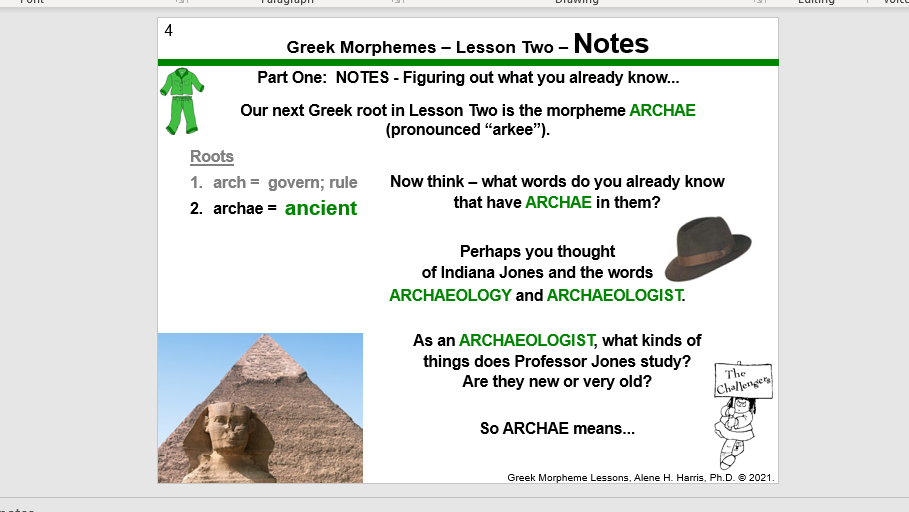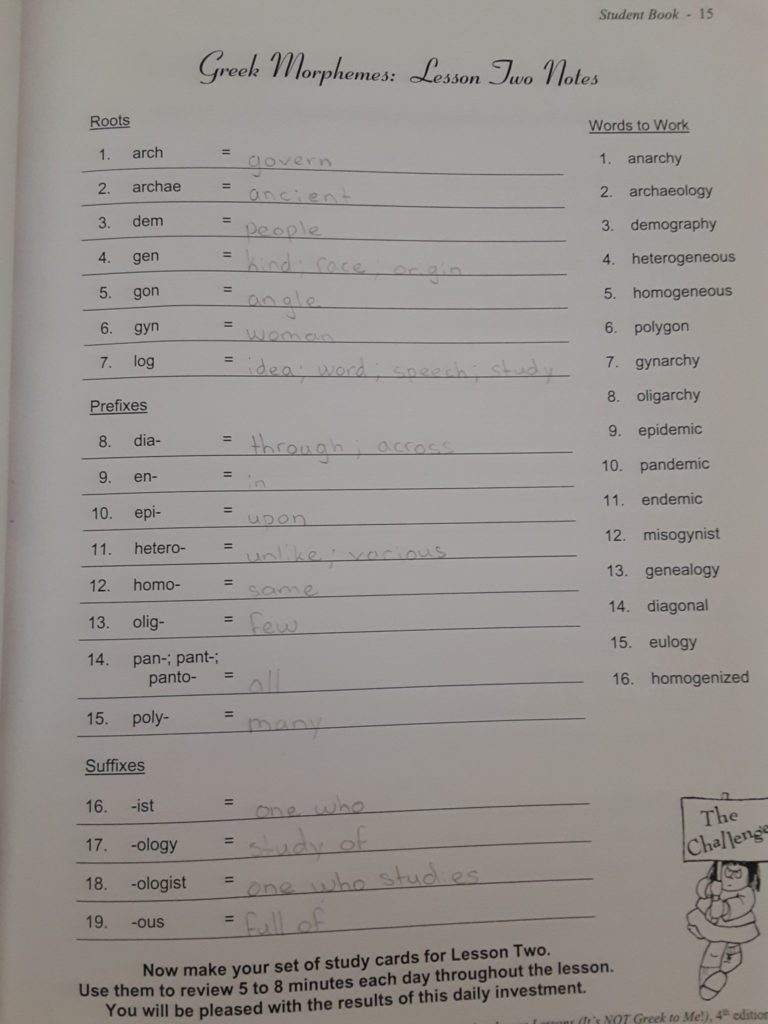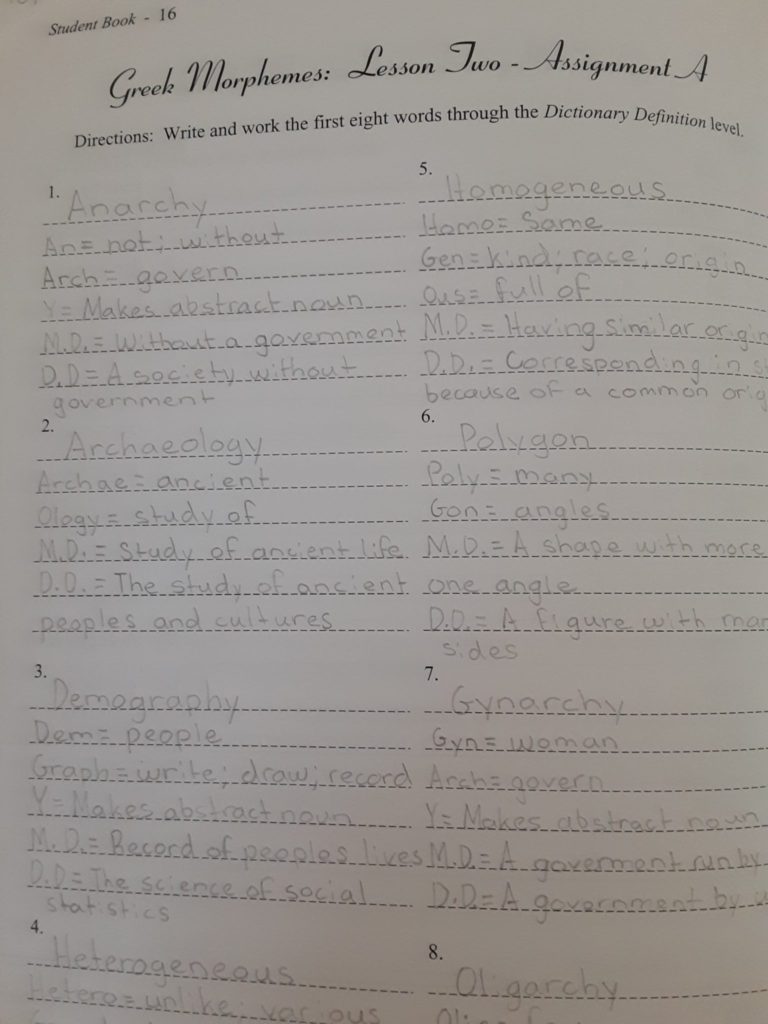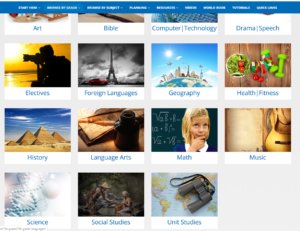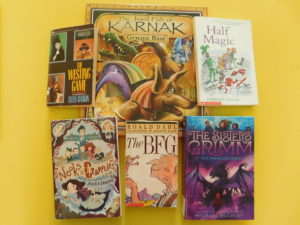Disclosure: I received this complimentary product through the Homeschool Review Crew.
I remember snippets from high school classes. Some I remember fondly, while others…well, you know how it is. One memory I carry with me even today is from my freshman English class. We studied Greek and Latin morphemes. I never fully appreciated those hours of studying and the mountains of flashcards until I went to take my SATs. Boy, I was never so happy my English teacher pushed us to study them. That is why when I saw the review for the vocabulary program, It’s NOT Greek to Me! by Ready to Teach; I knew I had to check it out. I want my kids to have good vocabulary development to help them, too, not just with SAT-type tests but in all academic areas.
As part of the Review Crew, I received an instructor’s manual, a student book, and a flash drive with PowerPoint lessons. I had all I needed to start teaching. It is an open-and-go program. For this review, I had my 14-year-old daughter try it out. She’s starting 9th grade, so it was perfect timing.
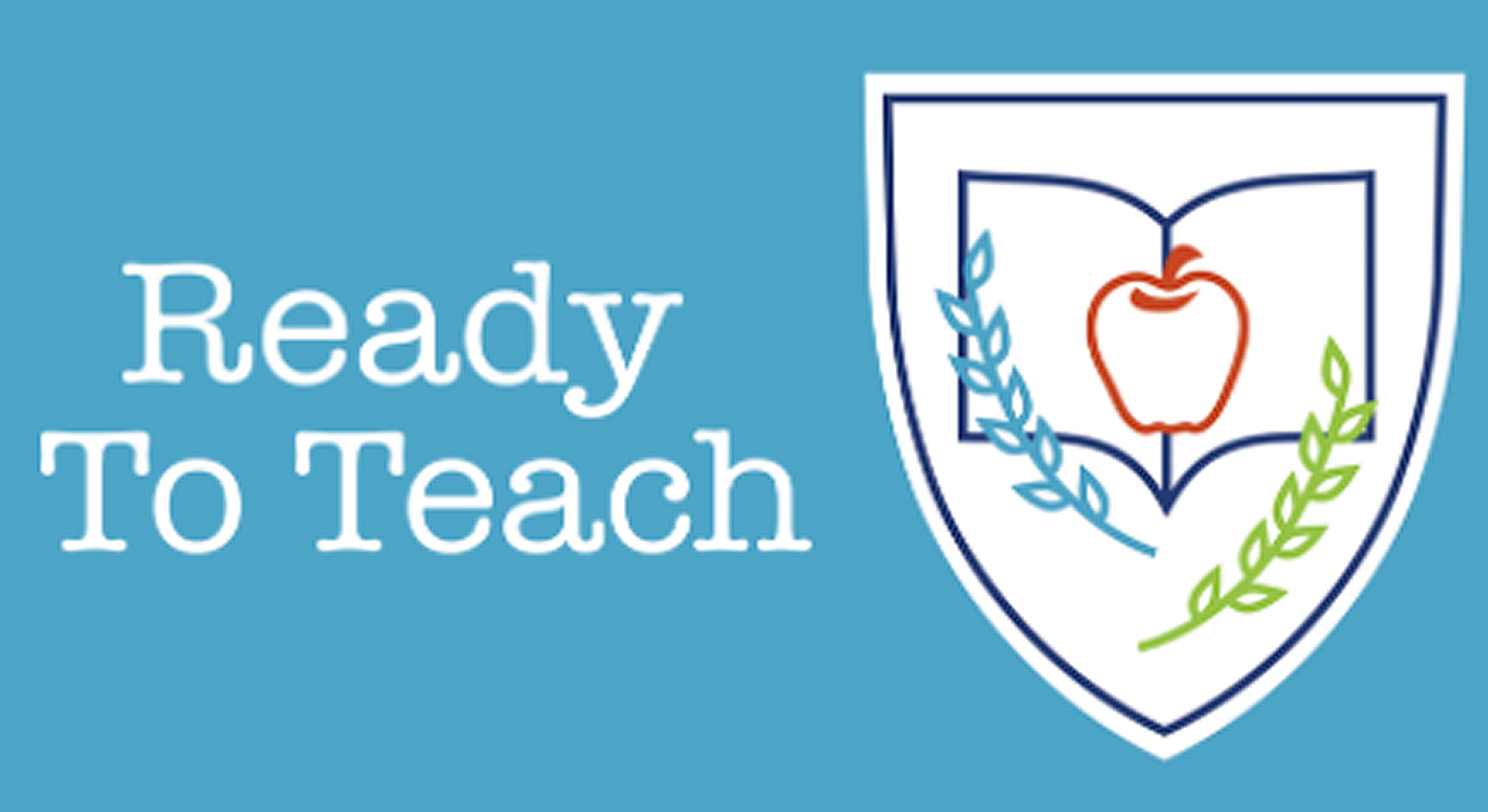
Table of Contents
- All About It’s NOT Greek to Me
- Vocabulary Development in Our Homeschool
- Does This Program Help with Vocabulary Development?
All About It’s NOT Greek to Me
Now, let me start with a bit of explanation. Some of you may be thinking, “Um, English class was a long time ago. So what is a morpheme?” Well, you probably know what it is but not by the name morpheme. We usually refer to them as prefixes, suffixes, and root words.
So an essential part of vocabulary development is learning the meaning of these morphemes because it helps kids (and adults) break up unknown words to figure them out. This vocabulary program works on over 200 Greek morphemes.
Over 12 lessons, kids learn Greek roots, prefixes, and suffixes. Each lesson contains 16 words for kids to learn. In addition, students periodically have review lessons to make sure they remember their previous vocabulary. I found this format to be quite manageable for my daughter.
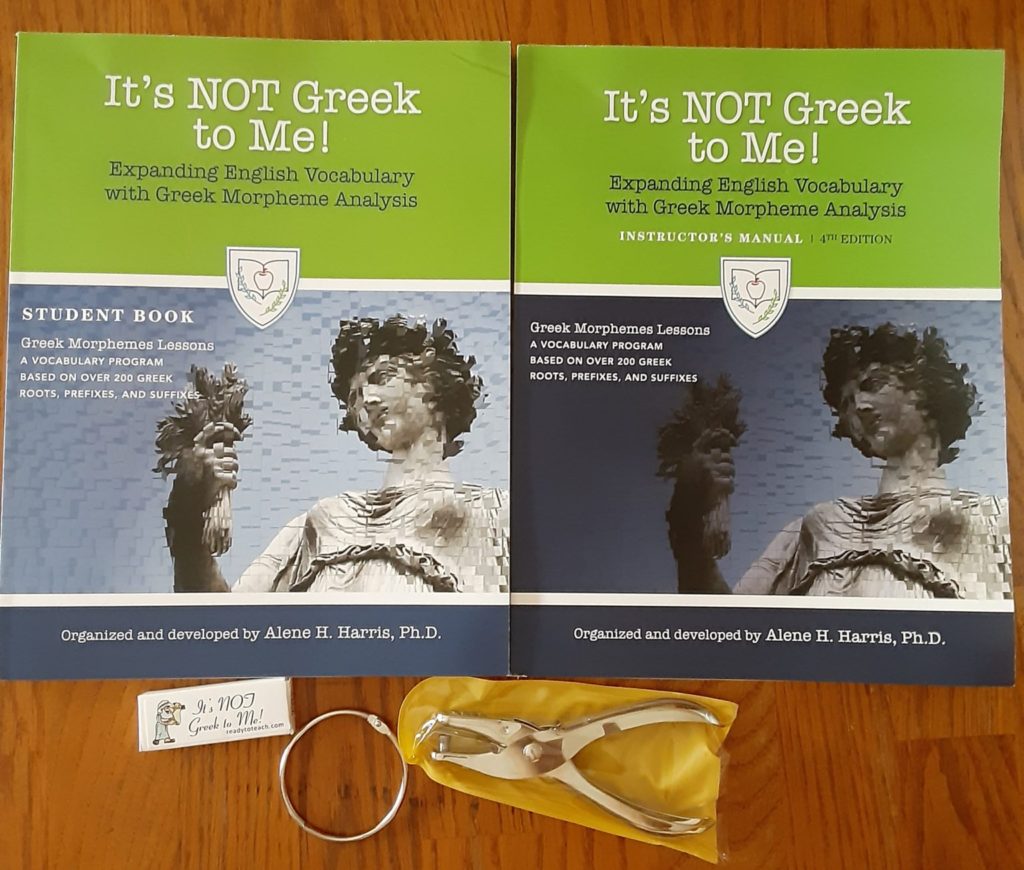
The Instructor’s Manual
If you want to know precisely how to teach this program, you must read the first ten pages of the manual. In it, you will find detailed lessons describing what to teach each day and a handy chart mapping out a 5-day schedule.
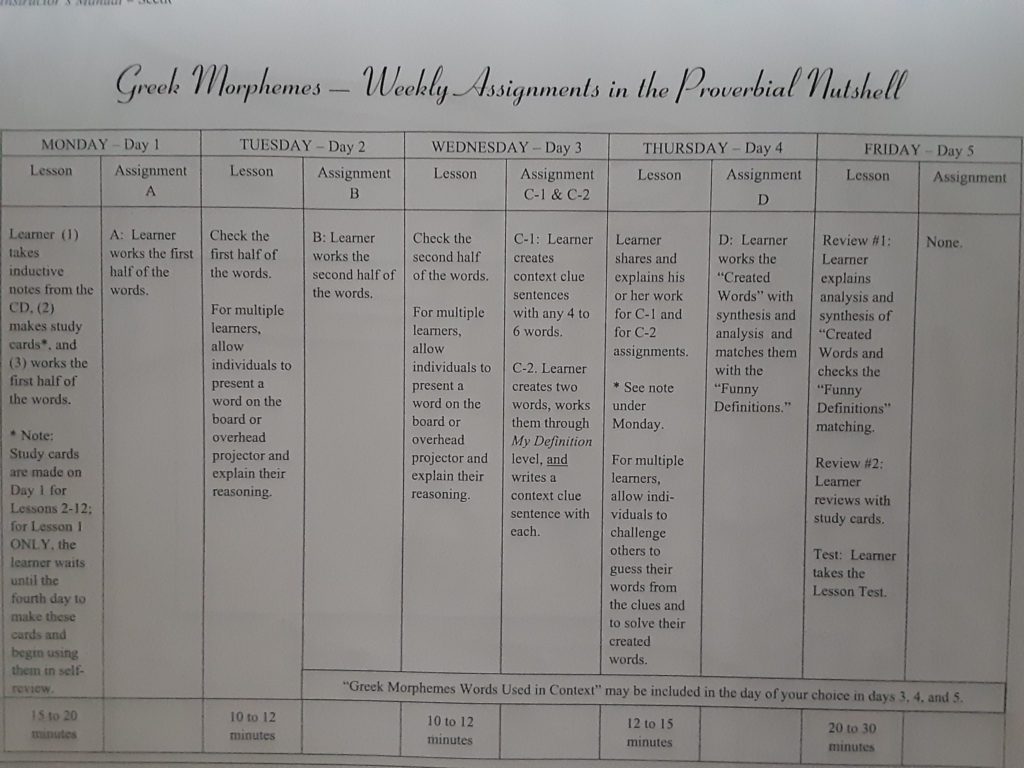
The other sections of the Instructor’s Manual provide:
- lesson notes and answer key
- review activities
- tests and answers
- appendix of morphemes
- premade study cards
The manual was SO helpful. It made planning much easier with everything clearly laid out. I knew exactly where to look if I needed to know what to teach on a certain day, answers for assignments, copies of tests, etc.
The Student Book
The student book is GREAT! Each lesson is clearly explained and follows a predictable pattern.
- Lesson Notes– The 16 words are broken up into roots, prefixes, and suffixes categories.
- Words to Work– Kids write the word, break it into its morphemes and define them, write their definition of the word, and then the dictionary definition.
- Word Analysis– Here kids have a variety of different assignments in which they analyze the words.
- Words in Context– Students read a chapter from a story about the Rosetta Stone, which uses their vocabulary words in context.
- Make Study Cards– There are blank cards for kids to use in the back of their book. Kids write their words on flashcards to help them study. Each lesson has its own color.
- Word Review– Review activities.
- Test- Students take the test.
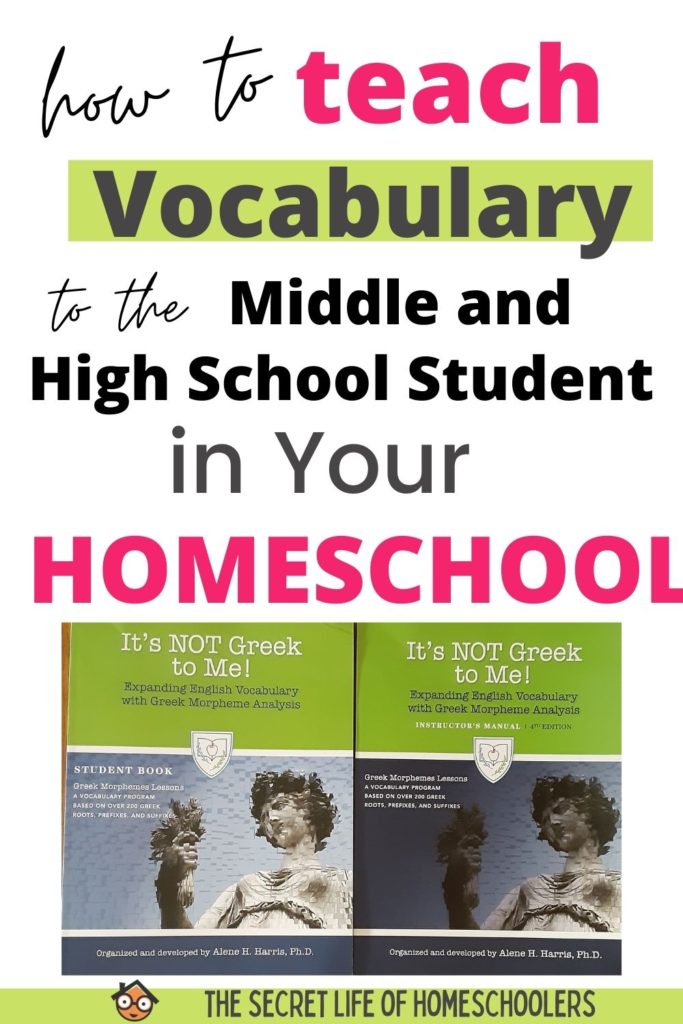
PowerPoint Slides
All of the lessons are on a flash drive. They are in a PowerPoint format which is very easy to use. Each day you can go through the lesson with your child or have your child do it independently. Either way, everything you need to teach this program is in the PowerPoint materials. There is no guessing on how to go about teaching it.
Clearly, the creator of this program understands how to teach kids. The developer, Alene H. Harris, spent 16 years teaching secondary English and science, and it shows. I believe that is why the materials are well laid out and so easy to use. In addition, Alene Harris understands vocabulary development very well from using this program with real kids over the years.
Vocabulary Development in Our Homeschool
Over the past several weeks, my daughter and I have been working on this vocabulary program together. I used the 5-day schedule as it was in the Instructor’s Manual. It has worked out well for us. My daughter did comment, though, that she feels like she could double up on some of the assignments, and it wouldn’t be too much. So we may once we get into a more rigorous schedule this fall.
My daughter and I would sit at my computer and go through the PowerPoint materials for each lesson. Eventually, I may let her go through the slides by herself because I think she would be capable of doing so.
Look at some sample PowerPoint lessons.
After we went through the daily lesson, she would do her daily workbook activities independently. She never had any trouble doing the assignments because she felt they were easy to understand.
Here’s a look at a few of the workbook assignments.
After she completed an assignment, we’d go over it together and practice her words.
At the end of the week, you’ll find a cool activity called Words in Context. Throughout the twelve lessons, a story on the Rosetta Stone unfolds. Within each new chapter, kids can find their weekly vocabulary words. I think this is an essential key to actual vocabulary development. Kids see the words used in a meaningful way, not in some made-up sentences. My daughter really enjoys the story and looks forward to reading the next chapter.
My girl also commented she likes the variety of activities given to practice the vocabulary words. She feels like they help her to REALLY learn the words. We have used other vocabulary programs, but my daughter has asked to keep using this one. She feels it works for her. I’d say I agree.
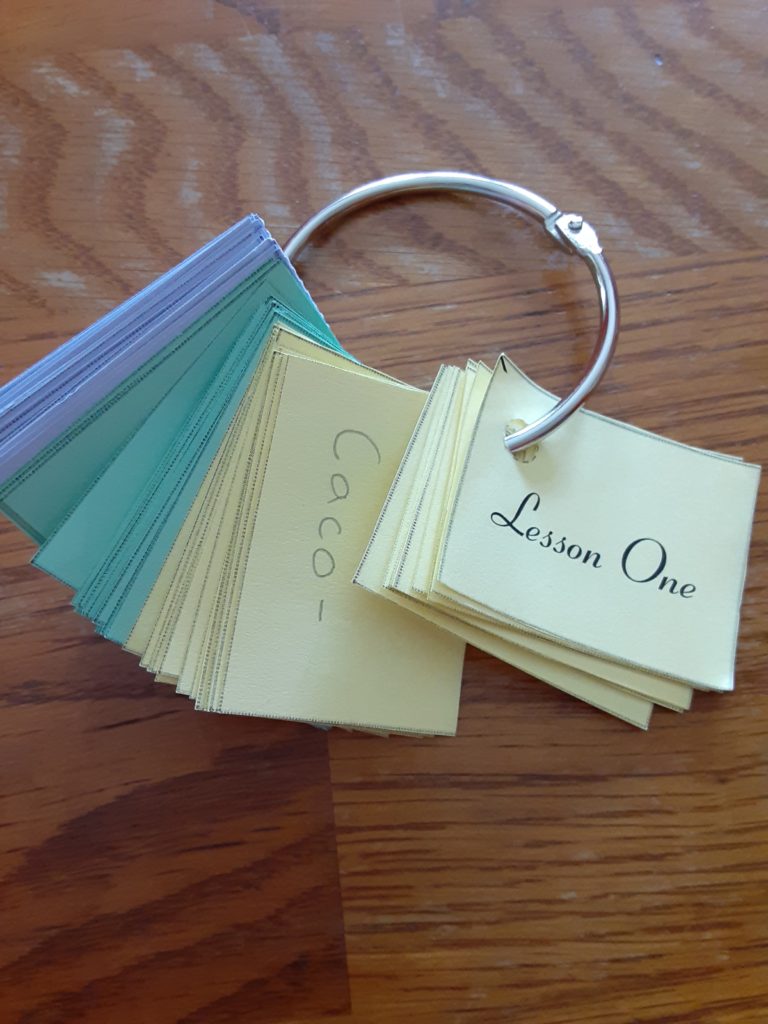
The last thing I’d like to share is a little information on the tests because I liked their format. Kids aren’t asked to match the definition with the correct word. Instead, they need to split the word up into each morpheme, define each morpheme, and write their definition of the word. When you correct the test, the student receives one point for each morpheme and meaning, so it isn’t an all-or-nothing deal. They can get partial credit. Plus, as a parent/teacher, I can see what my daughter understood and what she still needs to practice. It’s a practical assessment that gives you information to use.
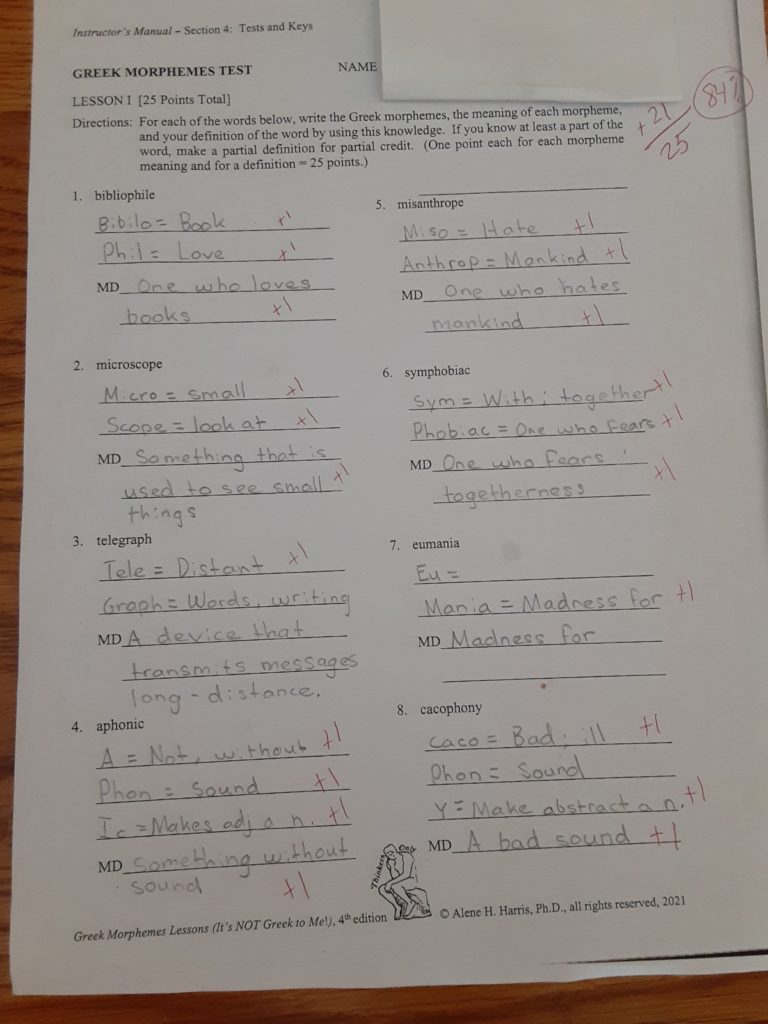
Does This Program Help with Vocabulary Development?
So, will It’s NOT Greek to Me! help with vocabulary development?
I would have to say yes!
I find this to be a well-planned program. Kids thoroughly study the parts of words helping them to learn the vocabulary, not just memorize it. I like the addition of the story to show the vocabulary words in a meaningful context and the valuable information you can get from the tests to see where gaps are. Plus, as a busy mom, I like how nicely everything is planned out for me. It’s a win-win; my daughter works on vocabulary development, and I don’t struggle with lesson plans. This is an excellent program for your middle or high schooler. I know I’ll be using it with my son too.
Other homeschool families used It’s NOT Greek to Me! To find out what they thought, check out more reviews by clicking the banner below.

Happy Homeschooling!
